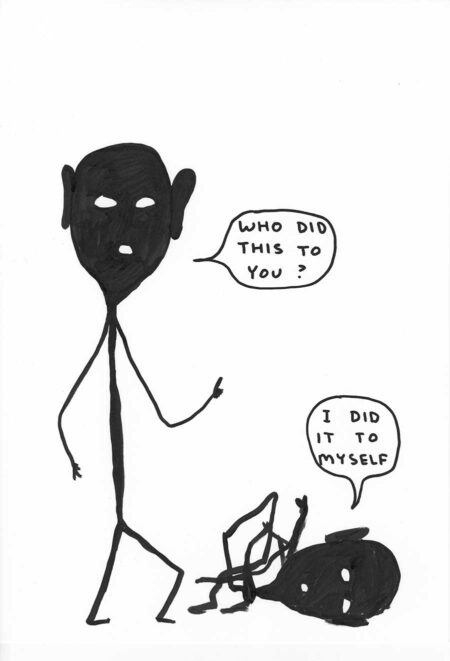Chapter 10 of potential hindrances to our creative development continued…
Let’s say I decide that creating in a state of deprivation (as discussed in the last article) is not my path and I really want to go for the primo abundant life as an artist— except now I find myself up against the doubt and confusion around selling out.
There are numerous impressions floating around out there about the eeevil of money and how it tampers with or obliterates art’s virtues. Some say this is a myth but we ought to know by now that every good myth contains some juicy truth. We could easily get spooked when we hear a big-gun philosopher like Arthur Schopenhauer saying something like,
“The author is cheating the reader as soon as he writes for the sake of filling up paper; because his pretext for writing is that he has something to impart. Writing for money [is], at bottom, the ruin of literature. It is only the man who writes absolutely for the sake of the subject that writes anything worth writing. What an inestimable advantage it would be, if, in every branch of literature, there existed only a few but excellent books! This can never come to pass so long as money is to be made by writing. It seems as if money lay under a curse, for every author deteriorates directly [whenever] he writes in any way for the sake of money. The best works of great men all come from the time when they had to write either for nothing or for very little pay.”
How is it that money has the power to crumble the integrity of our work? Perhaps what we need to hone in on here is the resistance that comes up when we are creating for the money. There are so many divisions made by and between concepts like capitalism and idealism and there is often this intense pressure that we need to take one of two very polarized sides. Opinions on one side might say selling is success and authenticity is idealism + arrogance + starvation while from another angle it might look like struggle is genuine art and selling is selling out. Perhaps the most important distinction we need to pay attention to is how we personally feel when we’re doin’ our thing and receive money for it and if anything changes when we start depending on that money.
Advertising copywriter and cartoonist Hugh Macleod seems to agree with Schopenhauer in his book, Ignore Everybody, where he wrote “Art suffers the moment other people start paying for it.” I’ve seen him criticized for perpetuating the myth that money is bad for art but the rest of this quote tells more of the story:
“The more you need the money, the more people will tell you what to do. The less control you will have. The more bullshit you will have to swallow. The less joy it will bring you. Know this and plan accordingly.”
What Macleod is getting at is that the more we need or desire the money, the more in danger we are of compromising too much—our boundaries could get noodley and we might find ourselves trying to please others, overworking, and then sacrificing or losing our vision and what’s really important to us. Therefore, we need to ‘plan accordingly’ so that we can keep an eye on our personal alignment.

Dave Chappelle. (source unknown)
In his first interview after leaving The Chappelle Show and going to Africa, comedian, actor, writer and producer Dave Chappelle told James Lipton that his father had cautioned him early on about being prepared for a certain level of money and fame: “…But name your price in the beginning. If it ever gets more expensive than the price you name — get outta there.” But you know how it is, sometimes we just don’t know the line until we’ve crossed it—and even then, we can get swept up in the momentum toward a dark and confusing place. As Chappelle quips to an audience full of students, “…You don’t know about when art and corporate interests meet yet; just prepare to have your heart broken.” It’s worth watching this entire episode of In the Actor’s Studio where he get’s super real about the light and shadow side of combining art, money and fame.
Apart from introducing external demands that can distract, exhaust and derail our creative flow, how else does working for the money threaten the integrity of our work and make us feel like a sell-out? American graphic designer Milton Glaser put it this way:
“Professional life is very often antithetical to artistic life, because in professional life you basically repeat what you already know — your previous successes. It’s like marketing — marketing is the enemy of art, because it is always based on the past — not that art is always based on the future, but it’s very often based on transgression. So when you do something that basically is guaranteed to succeed, you’re closing the possibility for discovery.”
Ah, yes, when we find ourselves repetitively reproducing our successes and end up trading our creative expansion for the financial flow, we may want to take an inventory of our sacrifices. This is not to suggest that we should avoid getting paid for work that is familiar and guaranteed to bring home the bacon. We’ve got to decide all this for ourselves. The world thrives on diversity and we need many different kinds of creative expression, non-creative expression and whatever combinations that might show up. This is about becoming aware of our own intentions, desires and boundaries so that we pay attention to our hearts and don’t get shoved onto a path of machinery or misery.
Play the game, but don’t believe in it— that much you owe yourself…Play the game, but raise the ante, my boy. Learn how it operates, learn how you operate.
~RALPH ELLISON
[Title image: David Shrigley! http://davidshrigley.com]
*Disclaimer: No copyright infringement intended. I do my best to track down original sources. All rights and credits reserved to respective owner(s). Email me for credits/removal.
